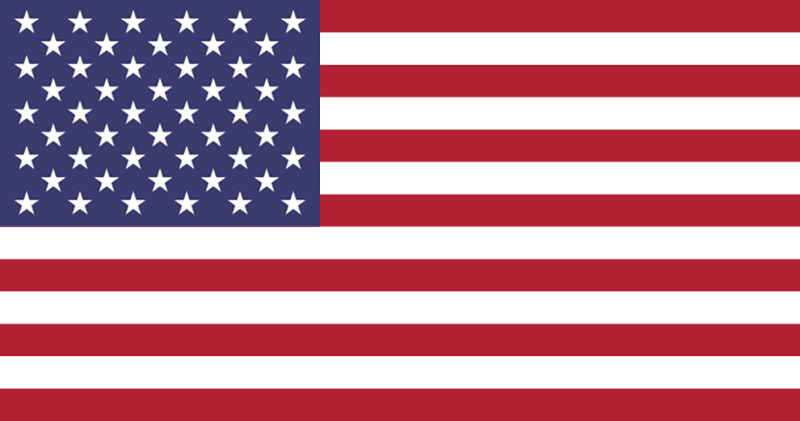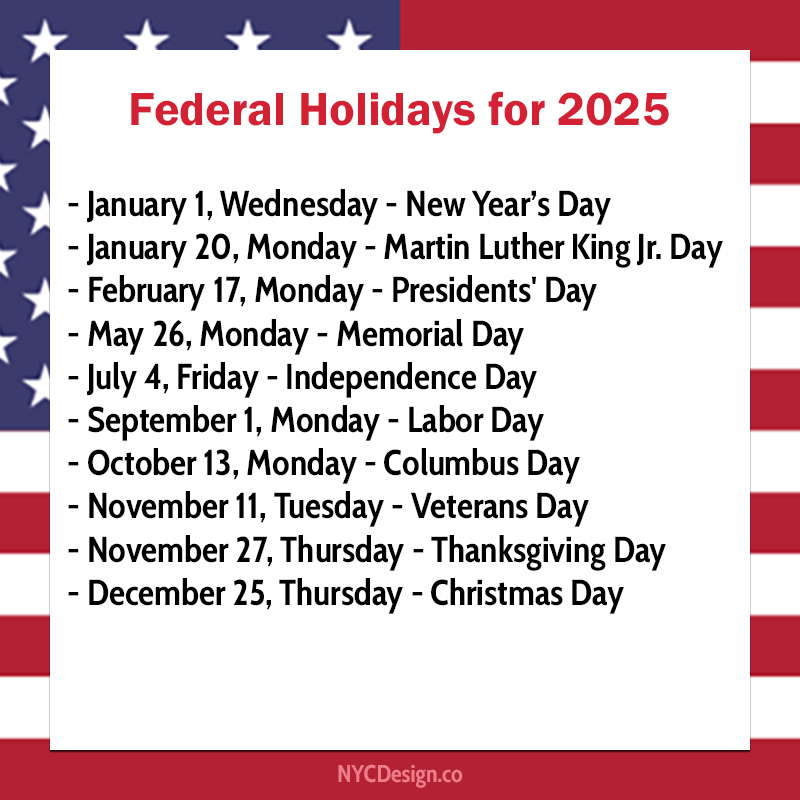No products in the cart.
Dates of Federal Holidays for 2025

The Federal Government provides employees with ten paid holidays each year. Private sector employers may provide these holidays off with pay, holidays off without pay, or holiday pay for working on a holiday, but they are not necessarily required to offer any of these options. It depends on the employer’s company policy regarding holidays.
Review a list of federal holidays, dates each holiday will be observed in 2025, information on holiday time-off and compensation, extra holiday days off from work, and when you may have to work on a designated holiday.
Holidays and Observances:
- January 1, Wednesday – New Year’s Day
- January 20, Monday – Martin Luther King Jr. Day
- January 20, Monday – Inauguration Day
- February 14, Friday – Valentine’s Day
- February 17, Monday – Presidents’ Day
- March 17, Monday – St. Patrick’s Day
- April 15, Tuesday – Tax Day
- April 20, Sunday – Easter Sunday
- April 21, Monday – Easter Monday
- May 5, Monday – Cinco de Mayo
- May 11, Sunday – Mother’s Day
- May 26, Monday – Memorial Day
- June 14, Saturday – Flag Day
- June 15, Sunday – Father’s Day
- June 19, Thursday- Juneteenth
- July 4, Friday – Independence Day
- September 1, Monday – Labor Day
- October 13, Monday – Columbus Day
- October 31, Friday – Halloween
- November 4, Tuesday – Election Day
- November 11, Tuesday – Veterans Day
- November 27, Thursday – Thanksgiving Day
- November 28, Friday – Black Friday
- December 24, Wednesday – Christmas Eve
- December 25, Thursday – Christmas Day
- December 31, Wednesday – New Year’s Eve

Observation Days on a Weekend
Federal law establishes these public holidays for Federal employees. When a holiday falls on a weekend, the holiday usually is observed on Monday (if the holiday falls on Sunday) or Friday (if the holiday falls on Saturday).
State Laws
State and local laws may have different guidelines, so check with the department of labor in your location for information on holiday leave and pay requirements.
Private Sector Holidays
Private companies are not required to close for holidays, or to pay overtime or holiday pay to their employees for working on a holiday. Even if they do close, they are not legally required to compensate workers with paid time off (PTO). However, companies may have policies that provide for holiday pay or paid time off.
The majority intended to observe seven specific federal holidays:
New Year’s Day (90%), Memorial Day (93%), the day before Independence Day (13%), Independence Day (93%), Labor Day (94%), Thanksgiving (95%), and Christmas (97%). A smaller percentage of businesses also planned to offer paid time off for Martin Luther King Jr.’s birthday (39%), Presidents Day (34%), Columbus Day (14%), and Veterans Day (19%). On average, private companies offered paid holidays for nine of these eleven federal holidays.
How Will You Know What Holidays You’re Entitled To?
If the company doesn’t explain their holiday policy during an interview, it is important to ask when you get a job offer.
Become familiar with the company’s policy on holidays so you know your holiday benefits before you accept the job and sign the employment contract, rather than after the fact.


